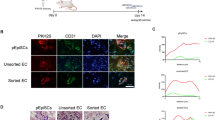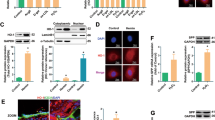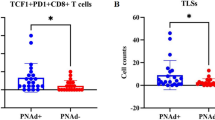Abstract
We report here, that a vector constructed based on ppET-1 gene promoter and 5' untranslated region induced a high level of gene expression in endothelial cells and the specificity is even further enhanced under hypoxia-mimic conditions due to a natural hypoxia responsive element within the promoter region. A naked DNA vector that confers endothelial cell specific gene expression as well as efficient levels of gene expression was constructed with an endothelial cell specific naked DNA vector, pETlong, by using the full length promoter of the preproendothelin-1 gene and the entire 5' untranslated region upstream from the start codon. Inclusion of the entire 5' untranslated region in pETlong increased gene expression 2.96 fold as compared with that from pETshort, which contains only the promoter sequences. Reporter gene expression from pETlong was 7.9 fold higher as compared with that from CMV-driven promoter based vector in calf pulmonary endothelial cells. However, in nonendothelial COS cells, luciferase activity from pETlong was only 0.3 fold as compared with that of CMV-based vector. Similar results were observed in other nonendothelial cells. These results demonstrate that the pETlong drives gene expression in endothelial cells with high efficacy and specificity. We have examined hypoxia responsiveness of pETlong as the promoter region of the preproendothelin-1 gene contains hypoxia responsive elements. The activity of the pETlong vector was increased 1.6 fold under hypoxia-mimic conditions using cobalt chloride. The high levels of hypoxia-inducible expression in endothelial cells relative to the low levels of background expression in other cells shows that pETlong could be a useful tool for vascular targeting of vascular disease and cancer gene therapy.
Similar content being viewed by others
Article PDF
Author information
Authors and Affiliations
Rights and permissions
This is an Open Access article distributed under the terms of the Creative Commons Attribution Non-Commercial License (http://creativecommons.org/licenses/by-nc/3.0/) which permits unrestricted non-commercial use, distribution, and reproduction in any medium, provided the original work is properly cited.
About this article
Cite this article
Cho, J., Lim, W., Jang, S. et al. Development of an efficient endothelial cell specific vector using promoter and 5' untranslated sequences from the human preproendothelin-1 gene. Exp Mol Med 35, 269–274 (2003). https://doi.org/10.1038/emm.2003.36
Published:
Issue date:
DOI: https://doi.org/10.1038/emm.2003.36
Keywords
This article is cited by
-
The targeting expression of the vascular endothelial growth factor gene in endothelial cells regulated by HRE.ppET-1
Science in China Series C: Life Sciences (2008)



